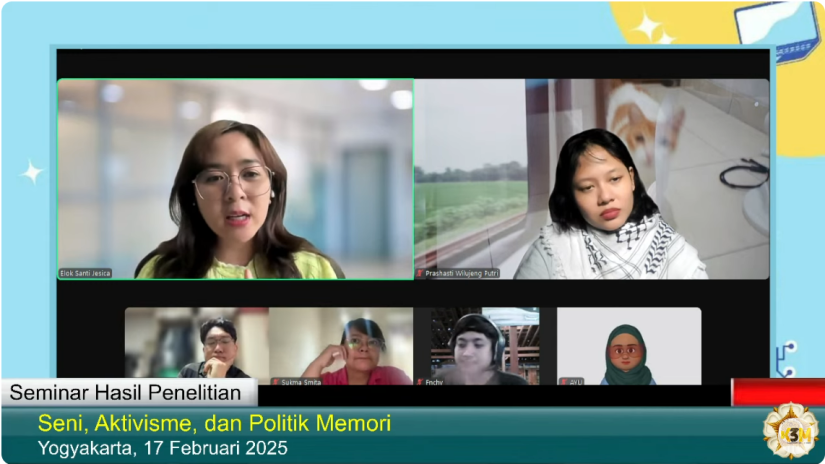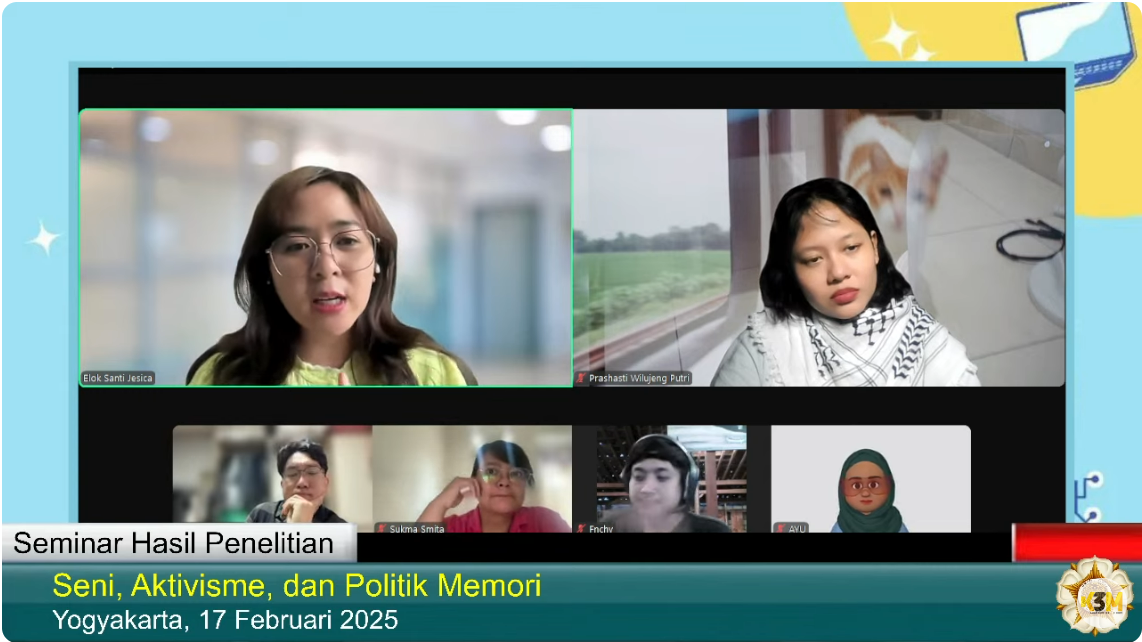

The Cultural Studies and Media Program (KBM Program), Graduate School of Universitas Gadjah Mada, was hosting Research Week from February 17th to 21st 2025, online via Zoom Meeting.
This event is an annual routine activity held at the beginning of the year as a platform to share experiences related to research. “Through Research Week, the KBM Program aims for students to understand the characteristics of research within the KBM Program and to engage in discussions about the research topics they will choose,” said Elok Santi Jessica, Quality Assurance Coordinator of the KBM Program.
Research Week invites alumni of the KBM Program as speakers, providing them with a space to disseminate the results of their research. The first session, themed Art, Activism, and the Politics of Memory, was held on Monday (17/02) and featured three alumni of the KBM Program: Prahasti Wilujeng Putri, Muhammad Fahmi Nurcahyo, and Sukma Smita Grah Brilianesti.
During this session, Prahasti discussed the labor force in Yogyakarta facing a single entity with different roles: the Sultan, the Governor, and the Capital Owners. This phenomenon has colored various societal events, such as labor movements and the mindset of the people. In her research, Prahasti seeks to examine the construction of labor demonstrations in Yogyakarta and how the radical, anti-structural, and iterable nature of demonstration performances reveals the power relations between those being protested against and those protesting.
Meanwhile, Fahmi presented research on the politics of memory of Lapindo mudflow survivors’ childhoods. As a resident of Sidoharjo, Fahmi believes the Lapindo mudflow tragedy is an industrial disaster. In his research, Fahmi mentioned that the practice of remembering the disaster is part of the healing process for the survivors in their new locations. Past events should not be forgotten but serve as a motivation to keep learning and become a legacy for future generations.
Sukma, with a background in the arts, investigated how the work system influences various social dynamics and even puts voluntary workers at risk. Sukma concluded that the work system for volunteers is disadvantageous and has the potential for exploitation. However, efforts have been made to create change, emphasizing the importance of clear requirements, better compensation, and a reevaluation of current work models.
Keywords: SDG 3: Kehidupan Sehat dan Sejahtera, SDG 4: Pendidikan Berkualitas, SDG 16: Perdamaian Keadilan dan Kelembagaan yang Tangguh
Author: Asti Rahmaningrum
